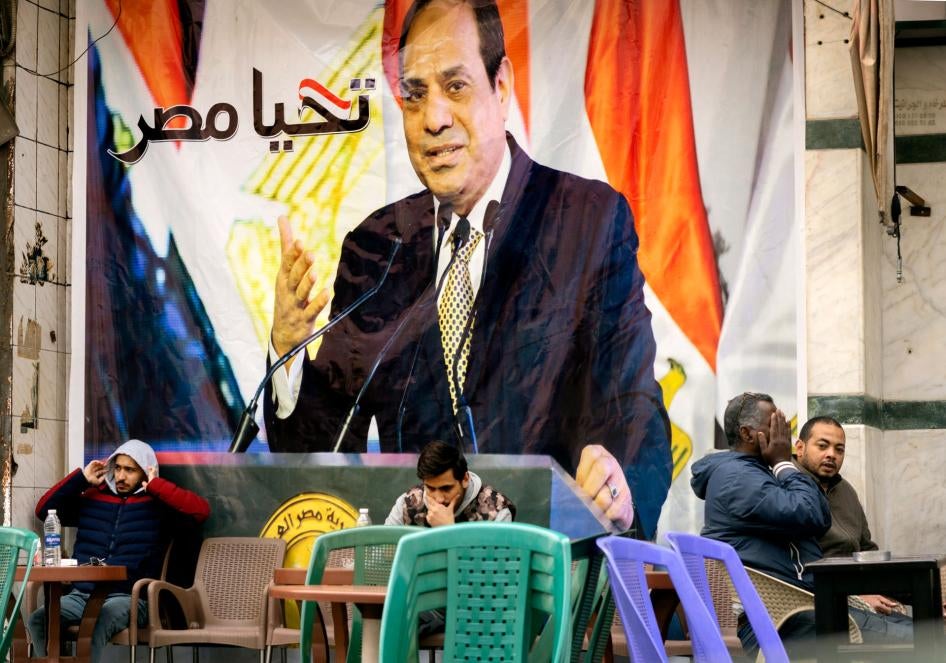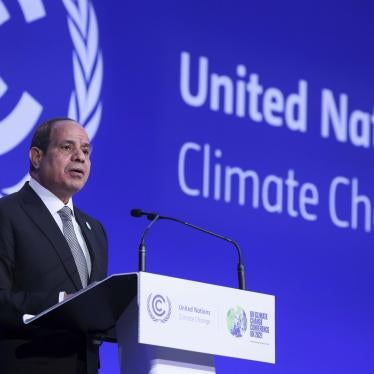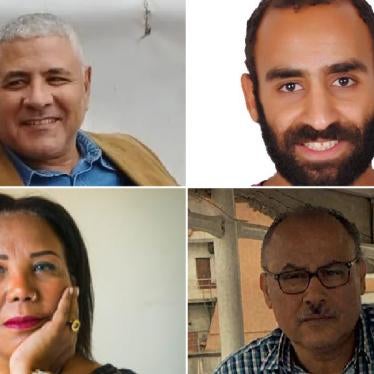Egypt is seeking a new loan from the International Monetary Fund (IMF) to address the fallout from a sharp increase in prices that has had devastating impacts on people’s economic rights.
Recent IMF loans to Egypt, worth a combined US$20 billion, introduced a number of economic policy changes that increased the cost of living for low-income people while doing little to address structural problems, including a lack of transparency, the erosion of the independence of key state institutions including the judiciary, and the military’s heavy-handed involvement in the economy, which is shielded from civilian oversight.
Will this time be different and prioritize the human rights of Egypt’s citizens?
Last month, Egyptian President Abdel Fattah al-Sisi appealed to “friends in Europe” to support him in telling international financial institutions (IFI) including the IMF that “the situation in our country does not tolerate the applicable standards at this stage.” The question is: which standards is al-Sisi seeking to evade?
At the press conference, al-Sisi defended the scope of government subsidies and warned against allowing the public to bear the consequences of the economic crisis, saying if prices continued to rise significantly it “will have serious repercussions on stability.” This suggests he may be resisting calls to further reduce subsidies that Egypt still maintains on fuel and food, both of which the government recently reduced, partly in the context of an IMF loan program. While al-Sisi’s apparent interest in protecting the public from the crisis is at odds with his history of implementing economic policies that chiefly benefit the elite, it is never too late to press back against IMF-driven policy changes that would further burden low-income people.
Reducing subsidies without first vastly expanding social protection could imperil the economic rights of millions of people. In a positive step, on July 26, Egypt’s Ministry of Solidarity announced temporary relief measures including cash transfers for 9.1 million low-income families, as well as an expansion of the two main cash transfer programs, Takaful and Karama, from 4.1 million to 5 million families. However, this still leaves a huge segment of the population unprotected from the crisis and the added burden of potential additional IMF-mandated measures that raise the prices of economic necessities.
Moreover, al-Sisi may be asking for help to evade a different set of IFI standards altogether. European governments should not help Egypt continue to avoid IMF efforts to address governance problems, such as the opaque economic dealings of the military and the erosion of the rule of law, which is critical for ensuring basic economic rights like the right to food. That the government is once again asking for a bailout after the IMF and other institutions have been pouring money into its economy for years makes it clear that until these problems are addressed, the IMF is pouring sand into a sieve.











